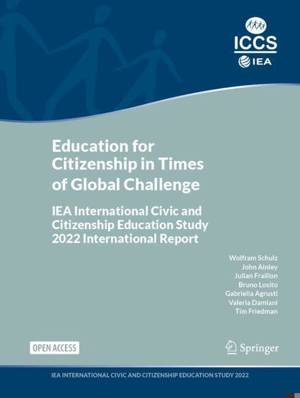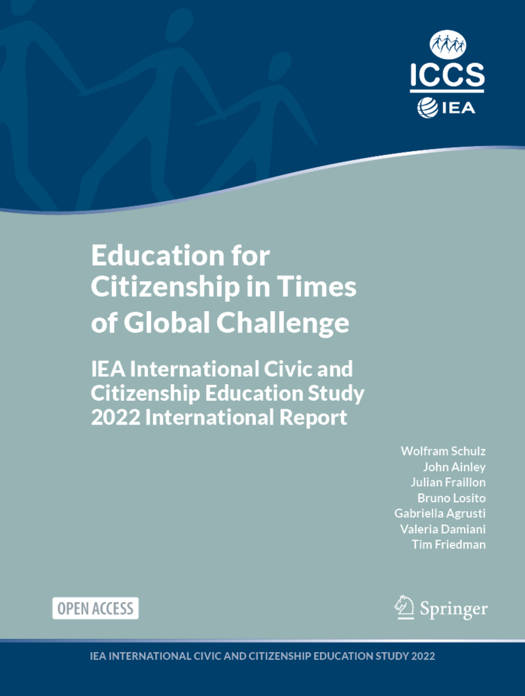
- Afhalen na 1 uur in een winkel met voorraad
- Gratis thuislevering in België vanaf € 30
- Ruim aanbod met 7 miljoen producten
- Afhalen na 1 uur in een winkel met voorraad
- Gratis thuislevering in België vanaf € 30
- Ruim aanbod met 7 miljoen producten
Education for Citizenship in Times of Global Challenge
Iea International Civic and Citizenship Education Study 2022 International Report
Wolfram Schulz, John Ainley, Julian Fraillon, Bruno Losito, Gabriella Agrusti, Valeria Damiani, Tim FriedmanOmschrijving
This open access book investigates the ways in which young people around the world are prepared to undertake their roles as citizens. It presents the international results from the third cycle of the study IEA's International Civic and Citizenship Education Study (ICCS 2022). Based on data from 24 countries or benchmarking participants from Europe, Latin America, and Asia, ICCS 2022 studies contexts for and learning outcomes of civic and citizenship education in a wide range of national contexts at the beginning of the third decade of the 21st Century. It responds to both enduring and emerging challenges of educating young people in a world where contexts of democracy and civic participation continue to change. The study addresses issues related to young people's engagement through digital technologies, migration and diversity, perceptions of the political system, global citizenship, and education for sustainable development. Further, it contains data that reflects civic-related aspects of recent developments such as students' perceptions of restrictions in response to national emergencies and their trust in scientists.
Over the past 50 years, the IEA has conducted comparative research studies in a range of domains focusing on educational policies, practices, and outcomes in many countries around the world. Prior to ICCS 2022, the IEA had conducted four international comparative studies of civic and citizenship education, with a first survey implemented in 1971, a second in 1999, a third in 2009 and a fourth in 2016. ICCS 2022 data allows education systems to evaluate the strengths of educational policies, from a comparative perspective, and to measure progress in achieving critical social objectives of their educational policy agendas.
Specificaties
Betrokkenen
- Auteur(s):
- Uitgeverij:
Inhoud
- Aantal bladzijden:
- 278
- Taal:
- Engels
Eigenschappen
- Productcode (EAN):
- 9783031656026
- Verschijningsdatum:
- 26/10/2024
- Uitvoering:
- Hardcover
- Formaat:
- Genaaid
- Afmetingen:
- 217 mm x 283 mm
- Gewicht:
- 925 g

Alleen bij Standaard Boekhandel
Beoordelingen
We publiceren alleen reviews die voldoen aan de voorwaarden voor reviews. Bekijk onze voorwaarden voor reviews.











